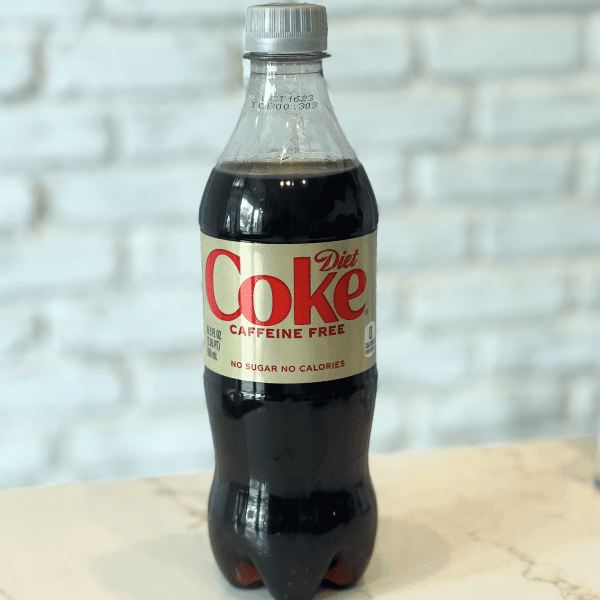Coke Zero and Diet Coke differ primarily in taste, formulation, and branding. 1. **Flavor Profile**: Coke Zero is designed to taste more like classic Coca-Cola, while Diet Coke has a distinct flavor profile that differs from the original cola. 2. **Sweeteners**: The sweeteners used in both drinks differ. Diet Coke is sweetened with aspartame, whereas Coke Zero typically uses a combination of aspartame and acesulfame potassium, aiming for a taste closer to sugar-sweetened Coca-Cola. 3. **Target Audience**: Coke Zero is marketed towards those looking for a calorie-free beverage that closely resembles the original Coke taste, appealing to a younger audience. Diet Coke tends to attract those who prefer a lighter soda. 4. **Nutritional Information**: Both beverages are calorie-free; however, they may have slight differences in sodium and caffeine content. Always check the nutrition label for exact figures. 5. **Branding and Marketing**: Their branding and advertising often target different demographics, with Coke Zero leaning towards younger consumers, while Diet Coke has been marketed as a choice for those seeking a no-calorie option. Overall, the choice between the two typically comes down to personal taste preferences rather than major health distinctions.

Exploring the Differences Between Coke Zero and Diet Coke
In the world of soft drinks, Coke Zero and Diet Coke stand out as two popular choices for consumers seeking low-calorie alternatives to regular soda. While both beverages promise an enjoyable taste experience without caloric content, they differ significantly in several key areas: flavor profile, formulation, branding, and target audience. Understanding these differences can help consumers make more informed choices based on personal taste preferences and health considerations. In this article, we’ll dive deep into the distinctions between Coke Zero and Diet Coke, exploring their ingredients, taste profiles, marketing strategies, and more.
Whether you're a fan of fizzy drinks or just curious about these iconic cola variations, you’ll gain insight into not only what makes each drink unique but also how they fit into the broader beverage landscape. Let’s start by examining their flavor profiles and ingredient differences.
Understanding Flavor Profiles of Coke Zero and Diet Coke
When it comes to soft drinks, taste is often the primary factor influencing consumer choices. Flavor profiles for Coke Zero and Diet Coke vary considerably, each offering a distinct experience. Coke Zero is crafted to taste much like the classic Coca-Cola, aiming to replicate the rich, caramelized flavor that many people love. In contrast, Diet Coke features a lighter, less sweet taste, which has been described as having a unique citrusy flavor with a hint of herbal notes.
This divergence in flavors can be attributed mainly to the formulation and sweeteners used in each beverage. Coke Zero is formulated to provide a taste that closely aligns with regular Coke’s flavor, making it a preferred choice for those who want to enjoy their favorite cola taste without the calories. Conversely, Diet Coke is often favored by individuals who appreciate a very different soda experience altogether.
Comparing Ingredients: Coke Zero vs. Diet Coke
The sweeteners found in Coke Zero and Diet Coke contribute significantly to their distinct taste profiles. Coke Zero employs a mix of aspartame and acesulfame potassium, a combination designed to create a taste experience similar to that of traditional sugary soda. On the other hand, Diet Coke is primarily sweetened with aspartame alone. For consumers concerned about artificial sweeteners, understanding these differences is important as they can influence not just flavor but also health perceptions.
The sugar content in both beverages is non-existent, meeting the needs of those looking to limit caloric intake. However, it's essential to consider other ingredients, such as caffeine, which also varies slightly between the two drinks. For instance, Coke Zero generally contains caffeine levels comparable to regular Coca-Cola, while Diet Coke may have slightly lower amounts.
Taste Differences: What Consumers Say
Consumer reviews reveal a wealth of opinions regarding the taste differences. Many loyal Coke Zero drinkers often express their satisfaction with how similarly it mimics classic Coca-Cola. Meanwhile, Diet Coke enthusiasts enjoy the refreshingly lighter flavor that’s distinct and, for some, less overpowering. In taste tests, some participants clearly align themselves with one beverage over the other based on what they find most appealing.
Understanding reviews, alongside nutritional labels, can guide consumers in selecting the drink that best suits their preferences. Many consumers advocate for trying both beverages to truly appreciate their unique characteristics and discover which one matches their taste palate.
The Marketing Strategies Behind Coke Zero and Diet Coke
Branding and marketing play crucial roles in how these beverages are perceived by consumers. Coke Zero is typically positioned towards a younger demographic, featuring modern advertising campaigns paired with bold visuals and catchy taglines. This strategy aims to attract a younger audience looking for a beverage that closely mirrors the taste of traditional soda while emphasizing a calorie-free option.
In contrast, Diet Coke has been marketed as a lifestyle choice, often associated with fitness and wellness. Advertising for Diet Coke integrates themes of self-care and mindfulness, appealing particularly to those who are health-conscious and prefer a lighter dieting alternative. These branding distinctions not only influence consumer choices but also foster brand loyalty among different demographics.
Demographic Targeting
The target audience for each drink also reflects broader trends in beverage consumption. Coke Zero typically attracts younger drinkers who prioritize taste and are looking for a familiar flavor profile without the associated calories. Meanwhile, Diet Coke appeals to an audience that values a lighter taste and textures, often aligning more closely with health-conscious consumers. Understanding these demographics can be vital for marketers aiming to resonate with specific consumer segments.
Health Benefits and Considerations of Coke Zero and Diet Coke
From a health perspective, both Coke Zero and Diet Coke can be appealing due to their zero-calorie content. Many health-conscious individuals appreciate the benefits of these sugar-free beverages, particularly those monitoring their caloric intake. However, there are ongoing discussions about the health impacts of artificial sweeteners found in both drinks.
Caffeine effects on health are also subjects of consideration for consumers. Almost identical, both drinks contain caffeine that may affect users differently depending on their sensitivity. As with any dietary choice, moderation remains key, and consumers are encouraged to consider their overall dietary patterns when including these beverages in their routine.
Consumer Choices: Preferences in Soda Consumption
When deciding between Coke Zero and Diet Coke, consumers often weigh their personal soda preferences alongside health factors. While both beverages are refreshing, their unique profiles cater to varying tastes and lifestyles. For some, the robust flavor of Coke Zero aligns with cravings for classic cola, while others delight in the lighter taste of Diet Coke.
Understanding the differences between these two offerings is invaluable in the current soft drink market, where consumer choices are driven by flavor, health trends, and marketing strategies. If you're debating your next soda choice, exploring both beverages as drink alternatives could lead to discovering your new favorite.
Emerging Trends in Dietary Sodas
As trends in the beverage industry continue to evolve, more consumers are looking for healthier options that compromise neither taste nor satisfaction. Both Coke variants consistently adapt to consumer reviews, creating innovative strategies to meet the changing demands of soda drinkers. The popularity of diet sodas remains steadfast, but awareness surrounding sugar-free alternatives is growing, leading consumers to make informed choices.
Conclusion: Making Your Choice Between Coke Zero and Diet Coke
Ultimately, the choice between Coke Zero and Diet Coke boils down to personal taste preferences rather than major health distinctions. Both beverages successfully cater to different segments of the market, providing unique flavor experiences and addressing the desires of consumers. As you explore these iconic sodas, consider what factors matter most to you—be it flavor, branding, or health impacts—in your soft drink selection.
For more insights on making informed beverage choices, check out the evolving trends in the soft drink industry and how these brands position themselves in a competitive market. Enjoy your drink of choice, and savor the refreshing experience it offers!
 example.com/image2.png
example.com/image2.png
 example.com/image3.png
example.com/image3.png